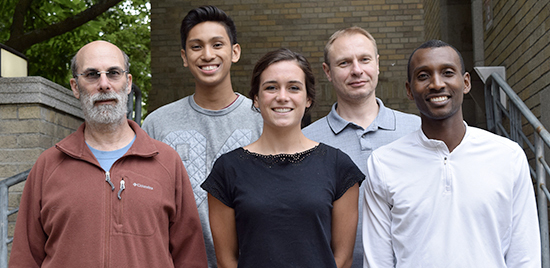Mitch Turker Lab

Research interests
I am interested in the mechanisms of abnormal gene inactivation and the relevance of these events to cancer. Abnormal gene inactivation results from two distinct types of events. The first is DNA mutation, which represents a change in the structure of DNA that alters expression of a given gene. The second type of event is epigenetic silencing, which involves loss of gene expression without alteration of the gene sequence. With regards to mutational events, we are interested in both endogenous and exogenous genotoxins that can affect the frequency and types of mutations that occur within the animal. A current focus is on how accelerated particles in space cause large-scale genomic damage that could affect astronauts during prolonged space travel. Our work with epigenetic silencing focuses on how silencing is initiated and determining the pathways that cause active genes to become aberrantly turned off.
Current projects
Workplace exposures can cause harm in a variety of ways, particularly if changes from the exposures are long-lasting. This paper shows long-lasting effects from a single exposure to a moderate dose of radiation in the form of protons. Although this study was intended to examine effects from the space radiation environment (the ultimate occupational exposure), the findings may apply to many terrestrial exposures as well. They show that proton exposure caused changes in DNA modifications termed DNA methylation. These modifications can have significant effects of gene expression, and we found that the exposure led to DNA methylation changes in the heart (left ventricle) and brain (hippocampus) that lasted for at least 20 weeks. Moreover, the changes were tissue specific because cardiovascular functions where affected in the heart whereas neuronal functions were affected in the brain. Assuming that chemicals and even stress in the work place have similar effects, which is suggested from work by others, our results demonstrate additional and relatively unstudied concerns from workplace exposures.
Lab members

Dmytro Grygoryev, Ph.D. - Assistant Staff Scientist
Dmytro Grygoryev, received his PhD in 1997. He joined the Turker lab as a Research Associate in 2009.
email: grygorye@ohsu.edu